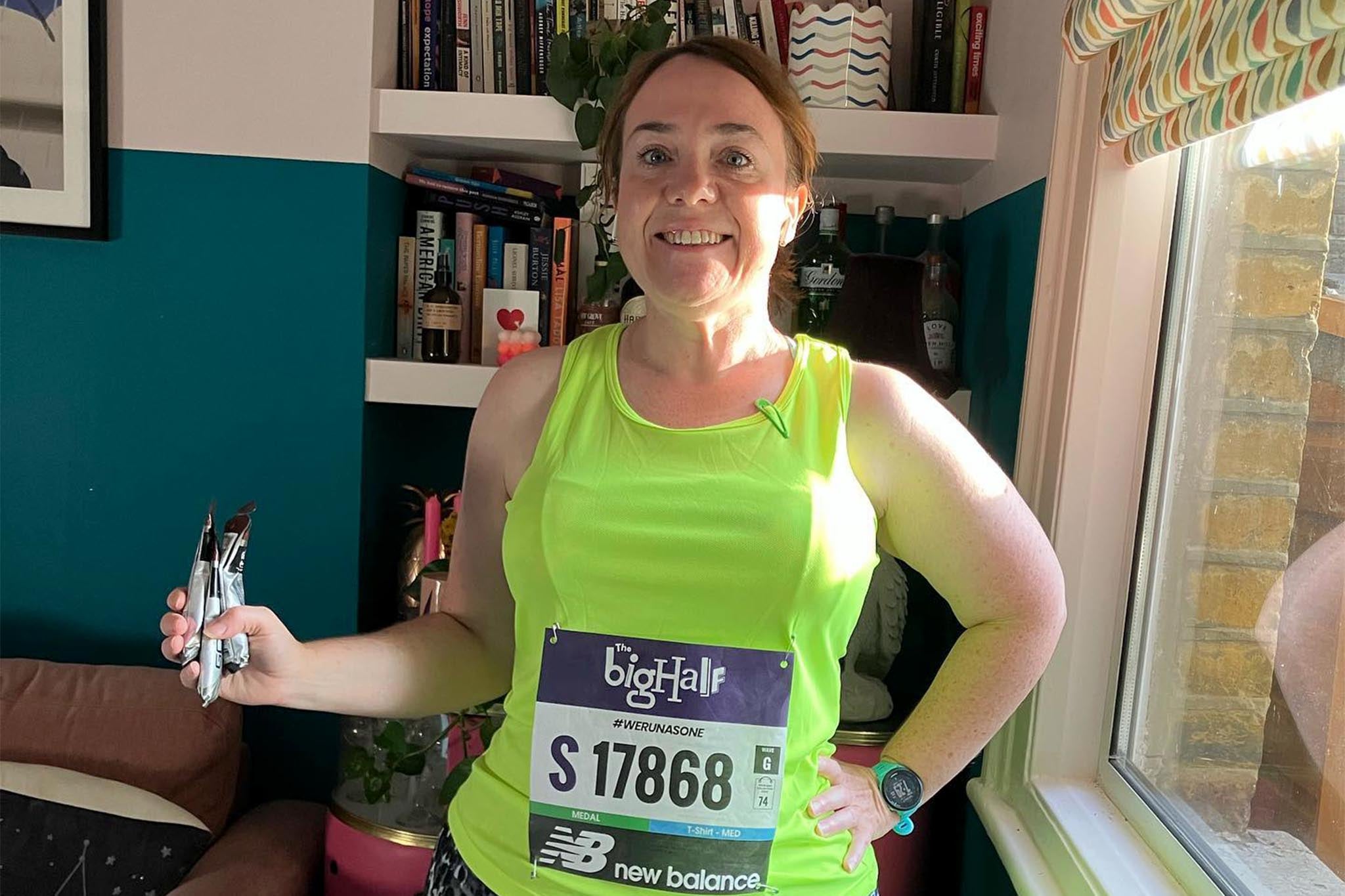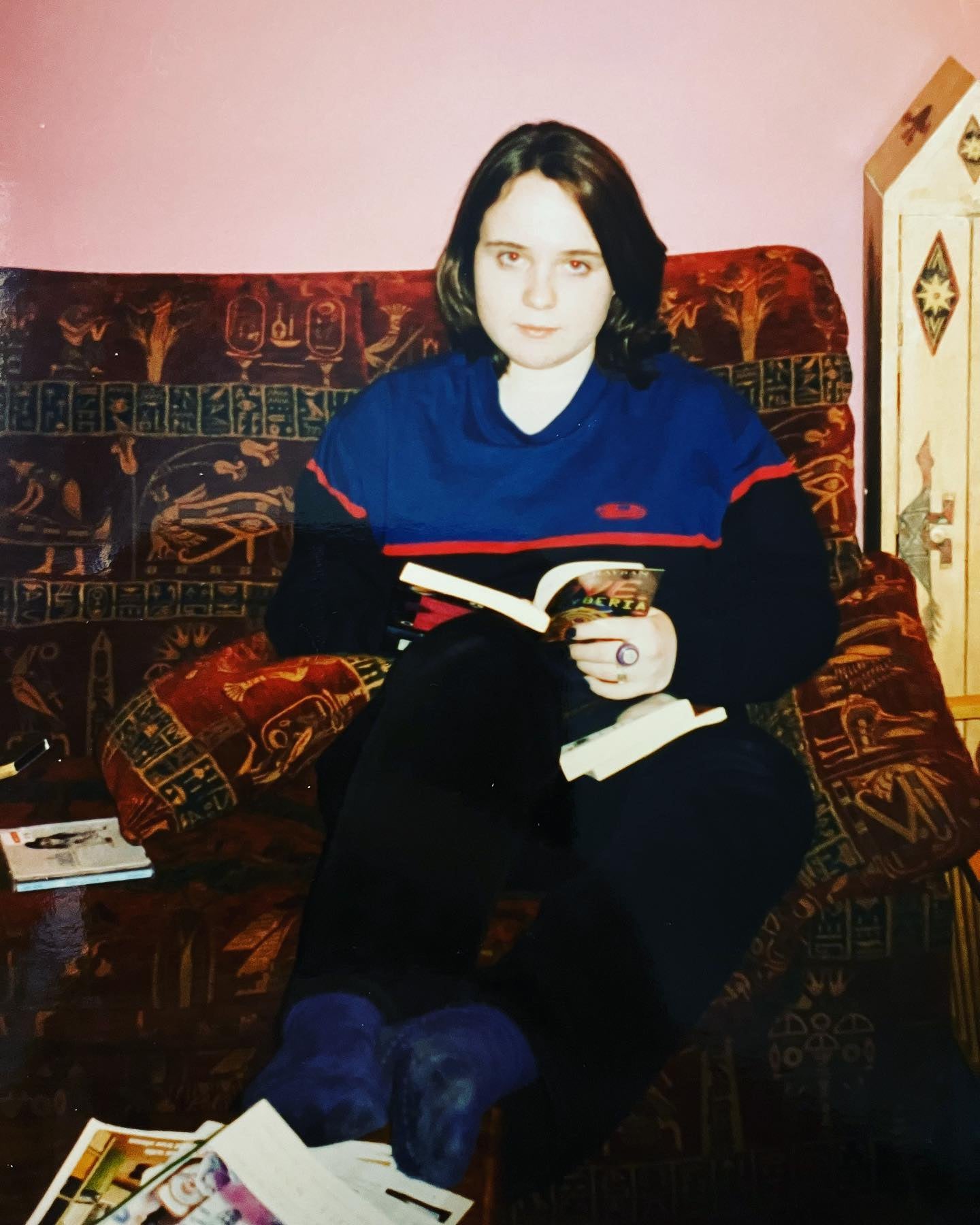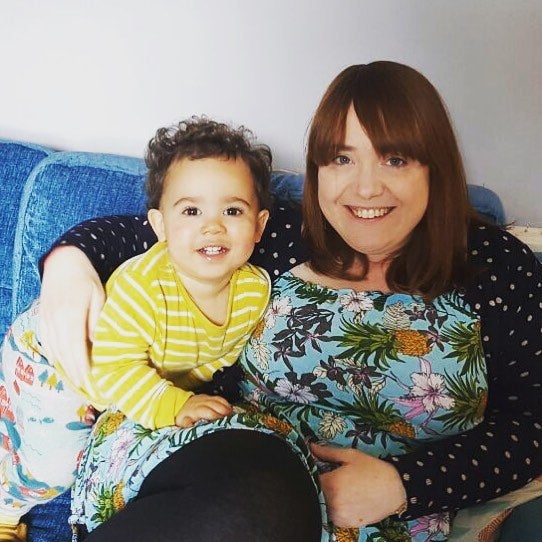I have battled with my weight most of my life – but I’ve only just discovered what truly works
As new figures reveal that Britain is bigger than ever, Isabel Mohan reflects on a lifetime of trying to slim down and why being told to diet and exercise more has always failed – until now

You were such a good baby,” my mum always tells me. The surprise third child, born late and chubby, and nicknamed “the Michelin baby” by my much older, slimmer siblings, I ate well, slept well and usually had a smile on my face, oblivious to my future as an obesity statistic.
Forty-two years on, I haven’t changed much – but I’ve found that those habits formed as a bouncing baby don’t get quite so much praise as an adult. New statistics indicate that Britain’s weight problem is costing £98bn a year due to its impact on both health and productivity – and as someone who’s always struggled with their weight, it’s hard not to feel ashamed.
Shame is what you feel when you are overweight, and it is something I have felt my whole life. And yes, I know my body is ultimately my responsibility – but the society we live in doesn’t make it easy to be healthy. And I’m not just talking about junk food here – the real barrier to a healthier nation is the hatred overweight people experience every day. We are demonised, dismissed, mocked and seen as a different species; a greedy, lazy, repulsive one; an embarrassing problem that needs to be solved.
If you’re fat or even just chubby, you’re written off physically from a young age. When I was a pubescent 11-year-old, painfully aware that I looked a lot curvier in gym knickers than my skinny mates, my PE teacher told me to “go and stand at the back with the other chubby ones”. For decades afterwards, these humiliating words stayed with me every time I tried anything approaching exercise.

Instead, as a teenager, I spent my time reading, writing and listening to music. I had a sweet tooth and was always a bit overweight, but not obese. In my early twenties, thanks to bad relationships, convenience food and lots of lying in bed playing Snake on my Nokia 3210, I peaked at a size 18-20; pretty big on my 5ft 4in frame, with a body mass index (BMI) firmly in the obese category.
In my late twenties, I lost over five stone on an extreme diet. I was a size 10-12 with a still overweight but socially acceptable BMI of 27. This lasted for about a fortnight, although I “only” put about half the weight back on, not bad by yo-yo dieting standards. In my thirties, hours spent breastfeeding my two children (now eight and five), while bingeing on both Hobnobs and Grey’s Anatomy and I slipped into obese territory again.
It wasn’t until I was nearly 40 that I finally cracked what “naturally slim” people have seemingly known for years: if you eat reasonably well most of the time and exercise regularly, you can maintain a healthier weight. Yes, those patronising words “just eat less and move more!” are technically true – but unfortunately that advice is incredibly hard to implement in the face of so much shame.
Usually, that hatred is insidious, evident in clothes shops that don’t go past a size 16 and captions about celebrities looking “curvy” in bikinis, but sometimes, it’s right there being shouted at you in the street.
Back in 2020, at a size 16 with a BMI of around 37, for the first time in my life, I made a conscious and committed decision to exercise. It was in lockdown and like so many others at the time, I downloaded the running app Couch to 5K. Miraculously, a habit formed – nobody was more surprised than me. A few weeks after completing the programme, I was out on an early morning 8K run, when two idiots in a white van whizzed past, windows down, and hollered “Keep it up fatty!”.

If I had been 20 years younger, I would have crumbled – but instead, I classily gave them the finger and carried on home, feeling frazzled but furious. Still, I didn’t just follow their “advice”, I owned it. I’ve since run three half marathons, more than 50 parkruns, and am currently in training for London Marathon 2024. Plus, I recently started a newsletter called Keep It Up Fatty, with a mission to encourage more people to exercise, while shining a light on why this can be so challenging. The dozens of messages I’ve received since launching it show that I’m not the only one whose experiences as a chubby child impacted their whole future.
Until these shaming attitudes change, all those well-intended but poorly executed initiatives to get the nation to lose weight will be destined to fail. The 64 per cent of the population who are now overweight or obese (up 11 per cent in 30 years) are too ground down to do everything a pamphlet, billboard or health app tells them. If we’re going to solve the “obesity crisis” there’s a confidence crisis to solve first.
I’m now a size 12-14 and my BMI is teetering on the threshold of overweight and obese – but I’m the fittest and strongest I’ve ever been. I’m confident that I’m contributing more to the economy with my pricey gym membership and Sweaty Betty shopping habit than I am taking from it: I’m no longer on blood pressure pills for a start. I also find that when I am active, I naturally eat better too; less sugar, more protein and (a bit) less wine. For the first time in a lifetime of yo-yo diets, it’s not about burning calories, but nourishing my body in the right way when it’s been working so hard.
I’m not naive enough to believe I have cracked my weight battle forever. I’m privileged to have the time to be able to exercise regularly and eat reasonably well now, but as I get older, I know my priorities, motivations and lifestyle could shift. It will always be a battle.
One of the health hazards of obesity is depression – and new research shows that regular running, particularly in groups, can be as powerful as antidepressants. The problem is, it’s a harder habit to form, particularly if you are feeling rubbish and lacking in confidence.

And when professional athletes are used to illustrate the benefits of a healthy lifestyle it really doesn’t help. Using a “power hour” for health is just not realistic for most people who are often juggling caring responsibilities, mental health issues, financial worries and sedentary jobs. Role models from within their own communities can be far more powerful – perhaps starting with PE teachers who cultivate and celebrate the athletic potential of all body types. Programmes like Couch to 5K and wonderful free community events like parkrun can also be transformative, but only if you get people to try them in the first place. I’ll never be the fastest runner, but my stamina is pretty awesome; if my self-esteem hadn’t been so low as a kid, I might have found this out sooner.
The other fundamental flaw in the approach to this impending health crisis is that people are now comparing junk food to cigarettes, totally ignoring the key difference between the two: eating is essential, smoking isn’t. When campaigners like Leon’s founder Henry Dimbleby say they want tobacco-style restrictions on junk food, it sounds like a red herring to me. The lines between “healthy food” and “junk food” are pretty blurred a lot of the time and I know plenty of overweight and even obese people who largely eat home-cooked, wholesome food. It’s just that often their portions are bigger, they lead sedentary lives and perhaps have a bit of a gin habit too.
The weight loss drugs the government is pushing aren’t a perfect solution either – they might help people get to a healthier weight, but the jury is out as to whether they can maintain it without staying on medication for life. The truth is, nobody is born obese, but small differences in lifestyle, upbringing and mental health can easily turn that bouncing baby into an overweight adult – just as they might manifest as an eating disorder or drug addiction in others, while not impacting someone else in the slightest.
The fear and repulsion that slimmer people feel towards overweight people is at play here – they want to believe that the obese live like slugs and exist solely on a diet of Greggs, McDonalds and Carlsberg. I don’t consume any of that stuff, but still have to work very hard to merely be acceptably curvy rather than obese. The problem is, contemplating anything more subtle would be admitting every slim person’s worst fear: they could be fat too. If PE teachers, white van men and politicians could treat “the obese” as complex humans rather than a shameful sub-species, it could bring about the wholesale change we need for a healthier society.
Join our commenting forum
Join thought-provoking conversations, follow other Independent readers and see their replies
Comments
Bookmark popover
Removed from bookmarks